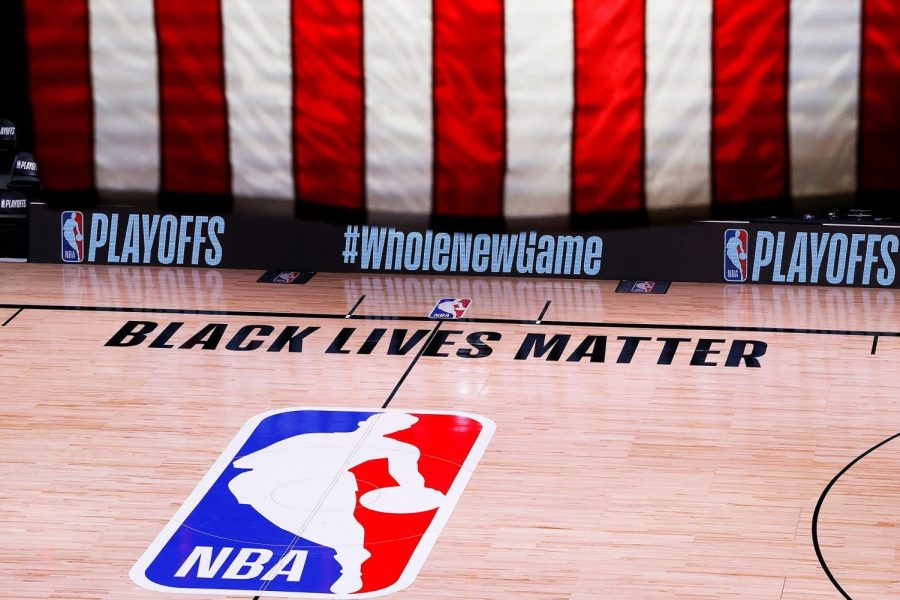The Importance of Sports’ Most Recent Strike
September 16, 2020
National Basketball Association (NBA) players shook the sports world when they took part in an unanticipated wildcat strike, which is commonly defined as a worker strike hosted without union support. The players were protesting the controversial police shooting of Jacob Blake in Kenosha, Wisconsin, which had occurred days prior.
On Aug. 27, shortly before the Milwaukee Bucks competed against the Orlando Magic, a surprising revelation came to light: following a summer of racial tension and the most recent shooting in Kenosha, the Bucks chose to not participate in the first round of playoff games.
“The past four months have [shed light] on the ongoing racial injustices facing our African American communities,” the Milwaukee Bucks said in an official statement explaining the strike. “Citizens around the country have used their voices and platforms to speak out against these wrongdoings. Over the last few days in our home state of Wisconsin, we have seen the horrendous video of Jacob Blake being shot in the back seven times by a police officer in Kenosha, and the additional shooting of protestors. Despite the overwhelming plea for change, there has been no action, so our focus today cannot be on basketball.”
The Bucks’ actions caused a ripple effect. In solidarity with Black athletes and all those affected by racial injustice, other MLS, NHL, NFL, MLB, and WNBA teams reciprocated the gesture and refused to play at their respective games. Tennis star Naomi Osaka forfeited her match at the U.S. Open, while the New York Mets held a silent protest in favor of Black Lives Matter, walking out of the stadium and leaving a Black Lives Matter jersey on home plate.
It was a historic moment, a never-before-seen show of unity—and, for a few days, it brought the sports industry to a grinding halt. The strike did end eventually, with playoffs resuming on Aug. 29, but not before the NBA made certain concessions. The league formed a social justice coalition and agreed to volunteer basketball arenas as voting locations as part of the demands made by players and team representatives.
“We had a candid, impassioned, and productive conversation yesterday between NBA players, coaches, and team governors regarding the next steps to further our collective efforts and actions in support of social justice and racial equality,” National Basketball Players Association Executive Director Michele Roberts and NBA Commissioner Adam Silver said in a joint statement. “These commitments follow months of close collaboration around designing a safe and healthy environment to restart the NBA season, providing a platform to promote social justice, as well as creating an NBA Foundation focused on economic empowerment in the Black community.”
The athletes participating in the strike join players of years past who have used their careers to protest racial injustice, such as Tommie Smith and Muhammad Ali. But they also set a new precedent in the sports world. Athlete protests have often been individual efforts, such as when NFL player Colin Kaepernick refused to stand for the national anthem in 2014—a gesture that was not only met with extreme backlash but resulted in Kaepernick losing his position in the league.
The Aug. 27 strike was vastly different. Instead of just raising awareness, NBA athletes withheld their labor and successfully shut down the industry, leveraging that until the league met their demands for change. The Bucks have paved a new path for protest and future action—and they did it on their own terms, too.
Photo courtesy of VANITYFAIR.COM

